I’ve been invited to dismiss, point by point, the… let’s be kind and say “unsupported” notions in Heidi MacDonald’s essay yesterday. It’s quite tempting to do so, but to what end? You don’t get to write something like that and then play the “I was just trying to encourage debate!” card. Quite honestly, I don’t find that the arguments that Heidi has set forth are worth debating, or really, that they’re arguments at all. Further, I feel like even engaging it gives it an unwarranted weight, and I’m sorry for two posts on the subjects in as many days.
Essentialy, I feel like this commenter at The Beat got it:
“The vagueness of Heidi’s argument (more like a collection of complaints) demonstrates the lack of intellectual rigor and attention to detail that so much comics “criticism†trades upon – particularly, but unfortunately not only, in an online forum such as this one. Only through generalizing conflations such as those employed by Heidi can one reduce an entire art form to polarizing binary categories, which then sinks the whole discourse to the dumb level of attacking and defending.
“Sweeping, provocative opinions need to be supported by analysis of detail in order to avoid coming off as mere gut reaction or the whims of taste.”
– Stephen Hirsch
http://pwbeat.publishersweekly.com/blog/2007/10/12/can-anyone-here-tell-a-story/#comment-458874
I can’t see saying much else about the situation as it currently stands. I just don’t think there’s anything worthwhile there, despite, as Tom mentioned, the ‘broad emotional appeal’ of the piece. It sounds a lot like my cartoonist friends bitching after a few pints at the bar, and I tend to hold that to a slightly different intellectual standard than criticism or debate. Usually I just order them another drink, secure in the knowledge that they’ll feel better in the morning.
– Christopher


I can only defend Heidi’s piece to this extent. She seems to be taking Ware & Co. to task for calling a tome The Best American Comics when it actually collects the best American comics OF A CERTAIN KIND, and I concur with that complaint. At the other end of the spectrum, it also bugs me when people say/write the phrase “best comics” and proceed to list only the “best genre comics” or “best superhero comics” or whatever.
It looks like my comment privileges have been taken away by Heidi until she approves of what I wrote.
Or at least that’s what I take “Your comment is awaiting moderation” next to my last post to mean. I don’t know that anyone else can see it.
That is so achingly sad and beyond pathetic I’m even more stunned than I was by that original posting.
Troy, the problem with that line of thinking is that it makes a value out of diversity which is a take on defining excellence that not everyone agrees with.
Another difficulty, although I don’t think it applies to this case, is that you can love and appreciate all sorts of comics as much as I do and there can be years where the good comics of a certain type dominate. One of the double-fallacies that can easily rise out of Heidi’s take on things is that all kinds of comics are made equally, and that all kinds of comics maintain their level of quality year to year.
You know, I guess it could be an automatic filter function because of the number of posts rather than actual moderation, and if it is, I apologize for falsely attributing motivation.
Good points as usual, Tom. And I agree that others might not buy into my Team Diversity view of comic book excellence. In fact, aside from a few notable exceptions, Best Of compilations of any stripe for any medium are often pretty narrow in scope. So this volume certainly isn’t alone. But for me, a title like The Best American Comics indicates diversity within, a covering of the waterfront. As opposed to a title like, say, Chris Ware Recommends or something (though I guess the “Edited by Chris Ware” credit should in and of itself serve as a good indicator as to the contents).
I agree that the quality level of various types of comics fluctuate from year to year. Some years might not have as many good autobio comics, while other years will have plenty. Same for crime comics, superhero comics, etc, etc. I’d never recommend any kind of quota system that mandated fixed proportions year in and year out (nor, I realize, are you suggesting I would).
I think a comparison with the rest of the “Best American” series is relevant here – by the same logic Heidi et al should insist that, say, The Best American Short Stories include not just the usual Harpers/Atlantic Monthly short story fair but also representative ‘best of’ examples from the world of genre fiction – sci fi, romance, etc … But of course the “Best of” range is not about catholic representation but more about offering some “good” work (in the editor’s eyes) from the year that has passed.
For a similar reason I am contemptuous of people that insist that The Comics Journal should be reviewing more genre fiction; in the first place, they do tend to review the higher quality work in such fields, and in the second place, suggesting that TCJ review “Capes and Costumes #X” is like claiming the New York Review of Books has a moral obligation to review the latest Mills and Boons output.
I also found Heidi’s comment about good characters being the heart of comics and Joyce’s Molly Bloom typifying this to be very amusing; Ulysses bears more relation in its formalism to Ware’s selection of comics than it does to Bone.
Now that you mention it, I actually do think The Best American Short Stories should include the best sci-fi, romance, etc. Not every year without fail, but reasonably often nonetheless. If the range of material in The Best American Short Stories is relatively narrow (Harpers/Atlantic Monthly), then maybe its title should be narrower too.
The Comics Journal is not called The Best Comics and the New York Review of Books is not called The Best Books, so I don’t expect catholic representation from them. (Though, yes, they obviously both pride themselves on covering what they consider to be the creme de la creme.) And, as you say, TCJ already covers standout genre stuff now and then.
No one has a moral obligation to review/include everything. But I think some of the controversy could be avoided if more BEST OF’s were instead called SOME GOOD’s. Or [INSERT EDITOR’S NAME HERE]’S PICKS [INSERT YEAR HERE].